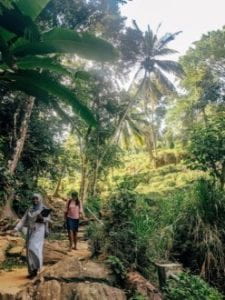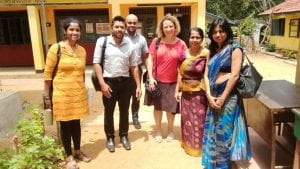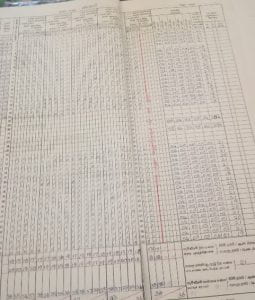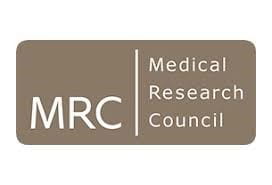Overview and aims:
 It is estimated that 30% of the risk of mental disorders in low and middle income countries (LMICs) is attributable to childhood adversity (CA), and evidence from high income countries (HIC) report it as a significant risk factor for suicidal behaviour. The challenges faced in LMICs are likely to be different, as parental mortality is much higher, and millions of children are left behind due to the economic emigration of parents. In Sri Lanka, CA, in the form of child maltreatment (e.g. domestic violence), or as a consequence of maternal separation, has been highlighted in primarily qualitative or case-series work as a significant contributor for suicidal behaviour. Evidence from good quality aetiological studies is lacking and is urgently needed as Sri Lanka is currently formulating its suicide prevention strategy.
It is estimated that 30% of the risk of mental disorders in low and middle income countries (LMICs) is attributable to childhood adversity (CA), and evidence from high income countries (HIC) report it as a significant risk factor for suicidal behaviour. The challenges faced in LMICs are likely to be different, as parental mortality is much higher, and millions of children are left behind due to the economic emigration of parents. In Sri Lanka, CA, in the form of child maltreatment (e.g. domestic violence), or as a consequence of maternal separation, has been highlighted in primarily qualitative or case-series work as a significant contributor for suicidal behaviour. Evidence from good quality aetiological studies is lacking and is urgently needed as Sri Lanka is currently formulating its suicide prevention strategy.
The aims of this study were to:
- Investigate the association between CA and suicidal behaviour using a hospital case-control study
- Explore the possibility of linking school records on attendance and achievement with an existing research dataset of 223,000+ individuals
- Explore the feasibility of adapting promising school interventions to prevent self-harm/suicidal thoughts in young people
Sample:
The hospital case control study was conducted in the Teaching Hospital Peradenya (Sri Lanka). Cases were patients aged ⩾18 years, admitted for self-poisoning. Sex and age frequency matched controls were recruited from the hospital’s outpatient department and local population.
For the linkage study we explored the possibility of linking data from two school settings, and for the intervention development we conducted a series of stakeholder interviews and workshops.
What did we do?
 For the case control study we recruited people who presented to hospital with self-poisoning (n=235), and also recruited controls (i.e. those who had not self-harmed n=451). For collected data through quantitative surveys and explored the association between childhood adversity, and other experiences with self-poisoning.
For the case control study we recruited people who presented to hospital with self-poisoning (n=235), and also recruited controls (i.e. those who had not self-harmed n=451). For collected data through quantitative surveys and explored the association between childhood adversity, and other experiences with self-poisoning.
For the linkage study we went to two schools in rural Sri Lanka and collected data on school attendance and achievement. We did this by taking digital photographs of hard copy record books. We entered these data into a database and then linked these with cohort data which was collected as part of another study.
As part of this project we did a series of stakeholder workshops/meeting to explore the possibility of developing a school based intervention program to reduce suicide and improve mental health in young people. In order to identify possible options for school based intervention we conducted a scoping review to identify school interventions that show promise. Using this information we identified the components of the different interventions and designed interview guides to gather the opinions of local stakeholders. In July 2018, we met with two directors within the Ministry of Education, and two school principals in the Anuradhaupura district. In addition we conducted 4 stakeholder workshops, 2 with teachers and 2 with A-level students.
What did we find?
In the case control study we found a strong association between CA (adverse childhood experiences/parental migration) and self-poisoning. Additionally, we also found associations between domestic abuse and self-poisoning. As part of an explorative investigation we also found that people who reported not having received good sex-education at school were more likely to self-poison in adulthood.
The linkage study was a success and we found that, whilst labour intensive, this linkage could be done. The meetings/workshops with stakeholders indicated that strengthening support for students for their mental wellbeing in schools could be a promising intervention.
Project team:
- University of Bristol, UK: Duleeka Knipe (PI), Judi Kidger, Jose López-López
- SACTRC, University of Peradeniya, Sri Lanka: Thilini Rajapakse, Lalith Senarathna
Funders/Supporters
This study was funded by the Medical Research Council
Publications and other outputs:
A selection of outputs are below, for up-to-date outputs see: https://research-information.bris.ac.uk/en/projects/hospital-based-case-control-study-of-self-poisoning-in-sri-lanka
Bandara, P., Page, A., Senarathna, L., Wijewardene, K., Silva, T., Gunnell, D. J., Knipe, D. & Rajapakse, T. N., 1 Apr 2022, In: PLoS Global Public Health. 19 p., e0000129.
Sex education and self-poisoning in Sri Lanka: an explorative analysis
Crowley, G. F., Bandara, P., Senarathna, L., Malalagama, A. S., Gunasekera, S., Rajapakse, T. N. & Knipe, D., 6 Jan 2022, In: BMC Public Health. 22, 1, 11 p., 26.
Knipe, D., Moran, P. A., Howe, L. D., Bandara, P., Wickramage, K., Gunnell, D. J. & Rajapakse, T. N., 1 Mar 2021, In: BMJ Global Health. 6, 3, 10 p., e003734.
Childhood adversity and self-poisoning: A hospital case control study in Sri Lanka
Rajapakse, T., Russell, A. E., Kidger, J., Bandara, P., López-López, J. A., Senarathna, L., Metcalfe, C., Gunnell, D. & Knipe, D., 19 Nov 2020, In: PLoS ONE. 15, 11, 17 p., 0242437.
Domestic violence and self-poisoning in Sri Lanka
Bandara, P., Page, A., Senarathna, L., Kidger, J. L., Feder, G. S., Gunnell, D. J., Rajapakse, T. N. & Knipe, D., 11 Sep 2020, (E-pub ahead of print) In: Psychological Medicine.
Knipe, D. W., Bandara, P., Senarathna, L., Kidger, J., López-López, J. & Rajapakse, T., 18 Aug 2019, In: BMJ Open. 9, 6 p., e027766.
Data from ACE & Self harm Sri Lanka (10-2020)
Knipe, D. (Creator) & Kidger, J. L. (Creator), University of Bristol, 5 Oct 2020
DOI: 10.5523/bris.37pg6mv6x35r12b98aoq4blcgs, http://data.bris.ac.uk/data/dataset/37pg6mv6x35r12b98aoq4blcgs
Contact for further details: dee.knipe@bristol.ac.uk


